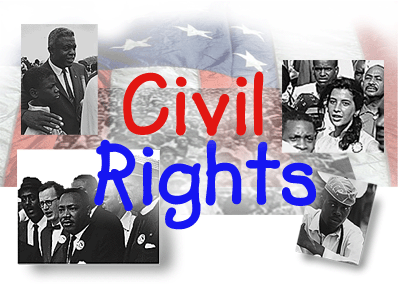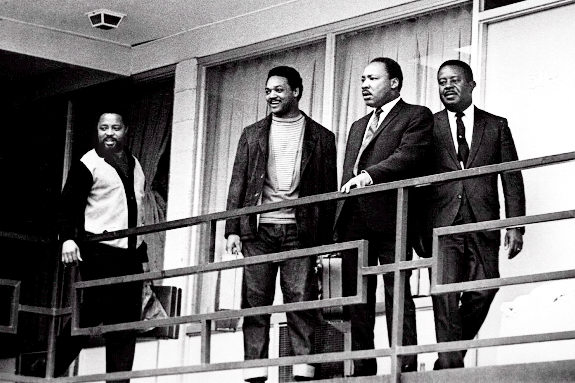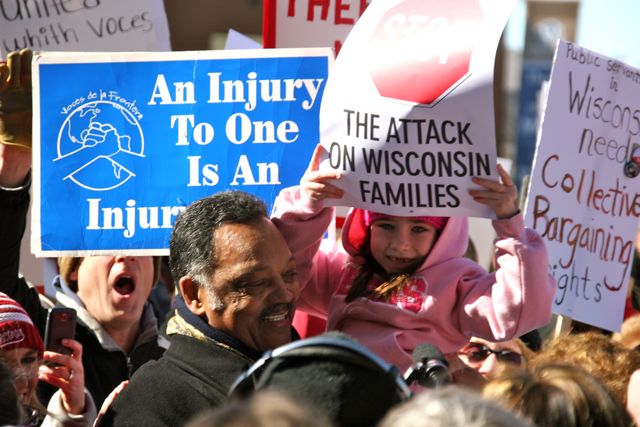|
The
Civil Rights Movement It wasn't until the decision of Brown v. the Board of Education that the Supreme Court found that separate but equal was a lie. In fact, that sending Black and White children to separate schools inherently deprived them of the education they could have from just interacting and learning about one another. Over night America's schools were ordered desegregated (many states ignored the ruling). It was Thurgood Marshall, attorney for the NAACP, who successfully represented Linda Brown and was to later become our nation's first African American Supreme Court justice. It wasn't until after the Korean War that President Truman ordered our armed forces desegregated. And then there's Rosa Parks, Martin Luther King & Malcolm X.
Again, true to my nature, I am getting ahead of things here. So much to tell you and so little time to teach! Here are the readings you need for this assignment. Write one sentence demonstrating your understanding of and relationship between each of the following sets of terms. 1. Rosa Parks, Montgomery, Alabama & Boycott 2. Civil Rights Act & Voting Rights Act 3. Brown v. Board, Little Rock, Arkansas Central High School & Dwight Eisenhower (Click here to see what happened to the "Little Rock 9") 4. SNCC, SCLC & CORE
5. Sit-in & freedom rides 6. Martin Luther King & march on Washington 7. Black Panthers & Kerner Commission 8. Explain how the philosophies of Martin Luther King and Malcolm X differed. With whom do you agree more and why? 9. What gains were made by African Americans through the Civil Rights Movement?
Please watch this:
10. This is a tough question. Do you think we've come a long way or not? On one hand we have an African-American President; on the other Milwaukee remains one of the most segregated cities in America and there is a lot of political strife in our city, state and country. What would Martin Luther King say today? |
 Our third president proved to be
right as the Civil War waged between 1861-1865 was largely about slavery and the economic
way of life it made possible. After the war the 13th Amendment
was enacted forever banning the peculiar institution. Soon came the 14th
Amendment which granted citizens equal protection of the laws. The 15th Amendment granted, at least in theory, the right to vote
to those African American men who met other qualifications depending upon the state in
which they resided. At the turn of the century a landmark decision titled Plessy v. Ferguson found that Blacks were entitled to treatment
and facilities which were "separate but equal" from those of whites. Thus
began an era of Jim Crow, especially in the south, where laws and practices
were carried out forcing Blacks into second class citizenship. Never mind that African
Americans, as you know, fought bravely in all of our nation's wars. Second class? No that
puts it too mildly. There is a man,
Our third president proved to be
right as the Civil War waged between 1861-1865 was largely about slavery and the economic
way of life it made possible. After the war the 13th Amendment
was enacted forever banning the peculiar institution. Soon came the 14th
Amendment which granted citizens equal protection of the laws. The 15th Amendment granted, at least in theory, the right to vote
to those African American men who met other qualifications depending upon the state in
which they resided. At the turn of the century a landmark decision titled Plessy v. Ferguson found that Blacks were entitled to treatment
and facilities which were "separate but equal" from those of whites. Thus
began an era of Jim Crow, especially in the south, where laws and practices
were carried out forcing Blacks into second class citizenship. Never mind that African
Americans, as you know, fought bravely in all of our nation's wars. Second class? No that
puts it too mildly. There is a man, 
